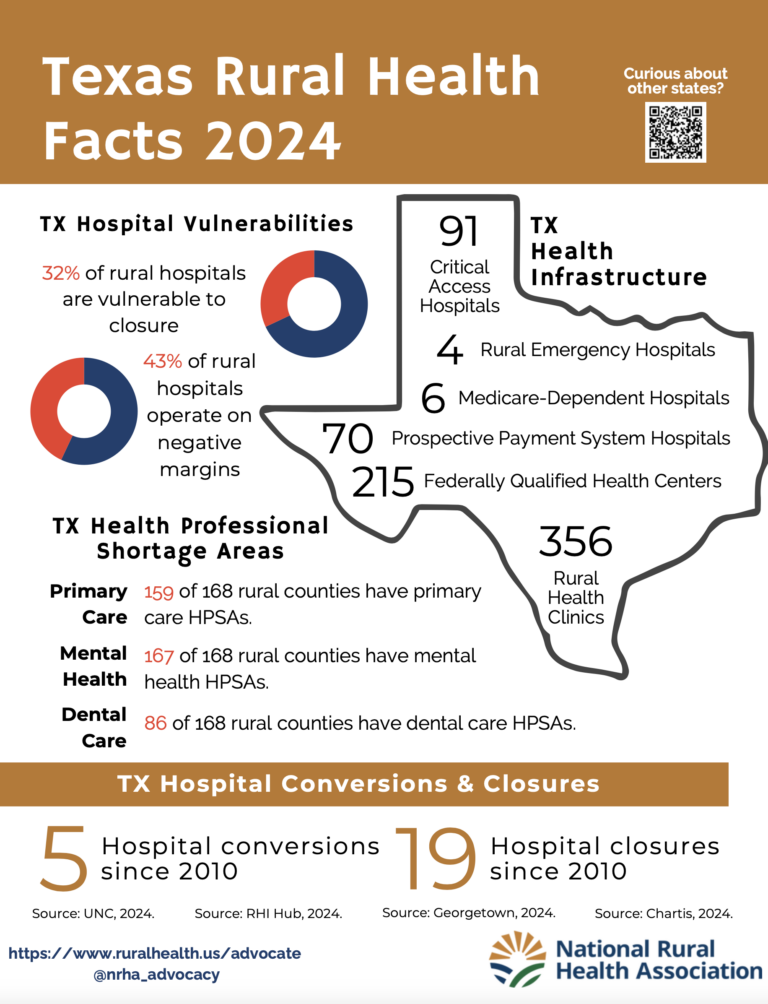Why Texas Rural Health Matters
Bridging the Gap Between Rural and Urban Communities for Stronger, Healthier Texans
Big Dreams, Bold Action—Welcome to Texas
Texas is more than just a state; it’s a diverse blend of communities that power its future. Rural Texas plays a critical role in the state’s economic, cultural, and social success. Strengthening rural health means strengthening all of Texas.


Understanding the Challenge
The First Step Toward Improving Rural Health Access
Rural Texans face distinct healthcare challenges, including fewer hospitals, long travel distances, and limited specialty care. Ensuring healthcare access for all communities—regardless of size or location—means providing:
- Primary, specialty care, and emergency
- Affordable healthcare services close to home
- Policies that support rural hospitals, clinics, and workforce programs
When rural communities thrive, the entire state benefits through stronger economies, healthier families, and a more resilient future for all Texans.
Why Rural Health Should Matter to All Texans
The Rural Healthcare Crisis: A Statewide Impact on Texans
Rural healthcare challenges in Texas go beyond local communities—they threaten the state’s workforce, economy, and overall well-being. From hospital closures to critical provider shortages, these issues weaken the backbone of industries that drive Texas forward.
- Agricultural Backbone: Feeding the nation through farming, ranching, and food production
- Energy Powerhouse: Driving oil, gas, and renewable energy development
- Industrial Support: Providing the workforce that sustains logistics, manufacturing, and infrastructure
Provider Shortages
159+ of 168 rural counties in Texas are designated as Primary Care and Mental Health Professional Shortage Areas. National Rural Health Association
Vulnerable Closures
32% of rural hospitals in Texas are vulnerable to closure—19 hospitals have shut down since 2010. National Rural Health Association
Lack of Maternity Care
47% of Texas counties are maternity care deserts compared to 32.6 in the US, lacking essential obstetric services and contributing to higher maternal mortality rates. -March of Dimes
Economic Vitality
Healthcare supports up to 20% of rural community employment and income. National Rural Health Association
Sustainability
43% of rural hospitals operate on negative financial margins, threatening their ability to continue providing care. National Rural Health Association
Rural Stories, Real Impact: Featuring Anson General Hospital
Keeping Care Close to Home: Anson General Hospital’s Fight to Stay Open
Every rural community has a story worth sharing—stories of resilience, innovation, and life-saving care. Anson General Hospital, serving the Big Country for over 72 years, is one of them.
As rural hospitals across Texas face financial struggles and closures, Anson General stood on the brink of shutting down—a fate that would have left Jones County without a single hospital. But instead of closing its doors, the hospital took action, becoming one of the first in the nation to convert to a Rural Emergency Hospital (REH)—a move that preserved 24/7 emergency care and ensured continued access for surrounding communities.
“At Anson General, we’re more than a hospital—we’re a lifeline for families across this region. Keeping rural hospitals open means keeping communities healthy, resilient, and connected to the care they need when every second counts.”
– Ted Matthews, CEO Anson General Hospital & TRHA Board Member
Watch Their Story
Thank you to our partner TORCH for being the power behind this video.
Get Involved
Your Role in a Healthier Texas
- Advocate: Support policies that strengthen rural healthcare access
- Share Stories: Highlight the importance of rural health access
- Connect: Engage with rural healthcare organizations and networks

